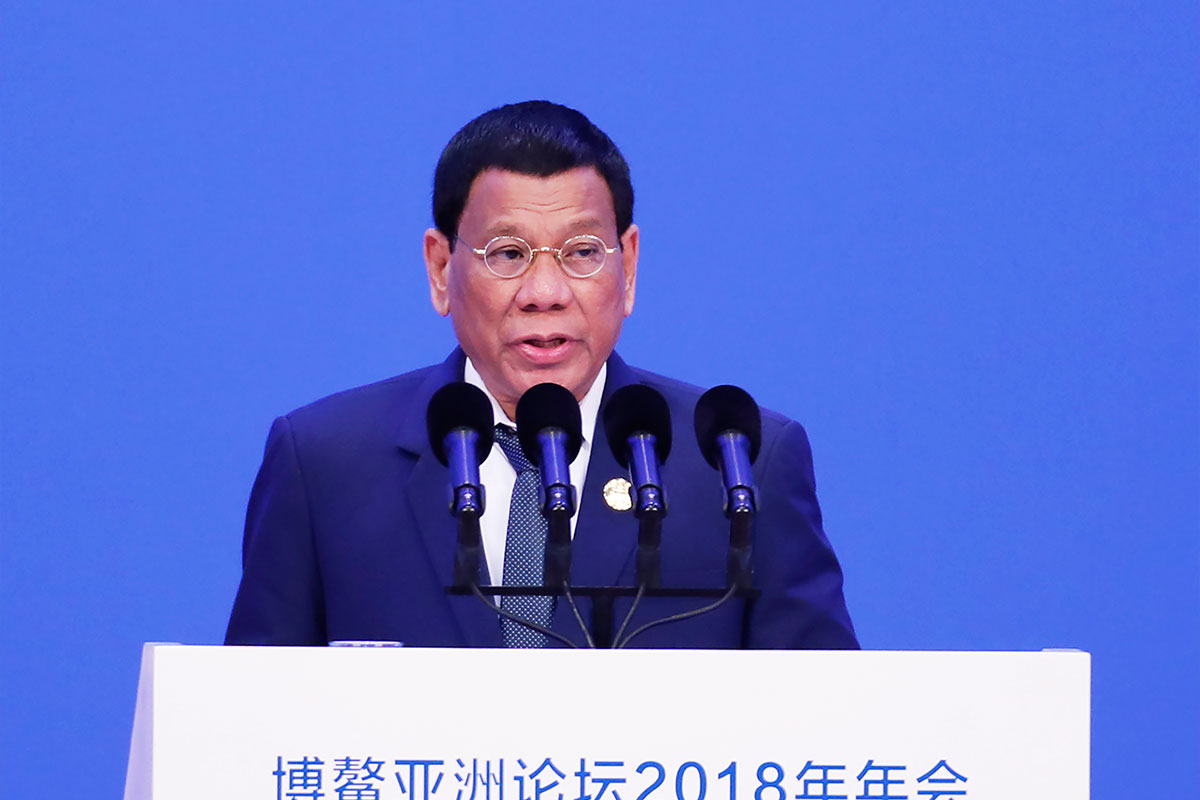Is Rodrigo Duterte’s love affair with China coming to end?
The Philippine president has twice lashed out at his nation’s largest trading partner in the past week, urging China to “rethink” and “temper its behaviour” in the disputed South China Sea. They mark some of the strongest statements since his dramatic 2016 pivot toward Beijing away from the United States (US), a long-time military ally.
Duterte’s shift in tone came as polls showed his personal popularity slipping due in part to concerns that China’s assertiveness over disputed territory is undermining Philippine sovereignty. While the president has repeatedly touted China’s financial help as a key reason for pivoting away from the US and Europe, much of the US$24 billion in investments President Xi Jinping’s government had promised has yet to materialize.
“I figure someone in his cabinet may be telling him to try at least to put up appearances that he is not a Chinese lapdog,” said Joseph Franco, a research fellow at the S. Rajaratnam School of International Studies in Singapore who worked previously for the chief-of-staff of the Armed Forces of the Philippines. “Duterte has a penchant for saying completely contradictory policy stances in the span of a day.”
Still, even for Duterte it’s a radical about-face from his recent comments about Xi during his third visit to China in March. “I simply love Xi Jinping,” Duterte said. “More than anybody else at this time of our national life, I need China.”
China pivot
On a trip to Beijing in 2016, Duterte announced a “separation” from the US and cemented his shift toward China. He also decided to ignore a tribunal in the Hague that in 2016 ruled in favour of the Philippines and rejected China’s claims to most of the South China Sea.
Since then he’s been accused of going soft on Beijing, with critics accusing him of failing to respond forcefully after China landed bomber aircraft on territory claimed by the Philippines and asserted its presence at Sandy Cay in the Spratly Island chain.
Voters have never warmed to Duterte’s shift away from the US - the Philippines’ only formal treaty ally and a key security partner - and have remained steadfastly opposed to China’s aggressive South China Sea stance.
Reality bites
Almost nine in 10 voters said they wanted the Philippines to assert its claims against China in the South China Sea, according to a Social Weather Stations survey of 1,200 voters conducted over the last weekend in June. Net satisfaction with Duterte among those who disagree with the government’s approach on Chinese intrusion is 44 percent, according to the poll. The same poll found that 65 percent of voters were satisfied with Duterte’s performance, down five points, bringing his overall satisfaction to a new personal low of 45.
More than two years into a six-year term as president, Duterte has been open about the difficulties of governing as opposed to campaigning, saying last week that he was so tired that he was even thinking of quitting.
“Duterte’s long two-year political honeymoon is over," said Malcolm Cook, a senior fellow at Singapore’s ISEAS Yusof Ishak Institute. "His sky-high popularity is heading back to earth. Inflation is climbing relentlessly. His war on drugs cannot be won, and his federalism campaign is floundering - no wonder he is talking about how lonely he is as president and publicly musing about stepping down.”
Still, whether or not Duterte will keep raising the pressure on China in a bid to curry favour with voters remains to be seen, given his past behaviour.
One area where he could see progress is if he can strike a deal on joint energy exploration in disputed areas that is favourable to the Philippines. Foreign Secretary Alan Peter Cayetano told reporters earlier this month that he was optimistic a draft framework will be completed by the end of August.
“I wouldn’t put it past him to make a turnaround, even on such a core policy,” Thomas S. Eder, a research associate at the Mercator Institute for China Studies, said by phone. “Duterte needs something from China to help him sell his foreign policy to the Filipino public. He needs a win.” - Bloomberg
